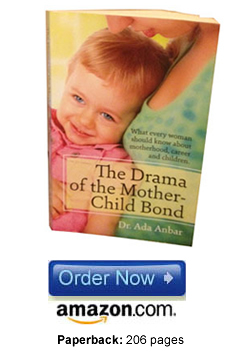 Preschoolers thrive on continuous individual relationships in a warm, stimulating environment. Spending long days in a daycare center is not the optimal environment for their development.
Preschoolers thrive on continuous individual relationships in a warm, stimulating environment. Spending long days in a daycare center is not the optimal environment for their development.
A few hours – two to three times a week – beginning around age three, in a good center or preschool, will offer social and intellectual enrichment for children.
But a daylong stay in a children’s center could not replace the special bonding, nurturing, teachings, and exclusive sense of belonging that only a good parent can provide.
Conclusive Evidence
The National Institute of Child Health and Human Development (NIHD) undertook a large-scale study in 2005 about the effect of daycare on American children.
Among the study’s disappointing findings:
- Children in childcare get sick more often than children who are reared at home.
- Infants in daycare were found to be more insecurely attached, less competent with peers as toddlers, more withdrawn and aggressive in preschool and had more problems in school as first graders.
- Children in childcare tend to be less polite, less agreeable, less compliant, less respectful of others, more irritable and rebellious and more likely to use profane language.
- The more time spent in childcare was found to correlate with a lesser degree of maternal sensitivity which is associated with poorer linguistic and cognitive development.
- The more time children spent in any variety of non-maternal care arrangements across the first 4.5 years of life, the more externalizing problems and conflict with adults they manifest at 54 months of age and in kindergarten.”
The NICHD study also affirmed the importance of the family and home environment:
“Children who received higher quality parenting as indicated by more sensitive, stimulating, and supportive maternal behavior at home and in semi-structured play displayed higher pre-academic skills, better language skills, more social skills, and fewer behavior problems than did children who received lower-quality parenting.”
The Importance of Continuity
Continuous affectionate relationships are essential for regulating children’s behavior, feelings, moods, and intellectual development.
Continuous relationships enable the smooth development of attachment and they foster a sense of belonging. Continuity provides the child with desirable model to identify with and emulate. It offers a reliable source for learning, and a trusted building hand for discipline Continuous relationship also provides an emotional anchor for the child, a solid root.
The type of interactions that are necessary for a child can take place in full measure only with a loving caregiver who has lots of time to devote to the child. A busy daycare provider, with four babies of six or eight toddlers usually won’t have the time for these long sequences of interactions.
A Conspiracy of Silence
In brief, the findings of the NICHD study are clearly negative, giving a straightforward response to parents who seek honest objective information about daycare. These findings are a huge disappointment to daycare advocates. And many people do not like hearing about them.
This leads to a conspiracy of silence among scientists and professionals.
This conspiracy of silence must be broken if we want to improve young children’s environment and their early development.
Given this conclusive information about the negative effect of long hours spent in daycare, one can only hope that this information will reach the general public and that parents will use it judiciously.





